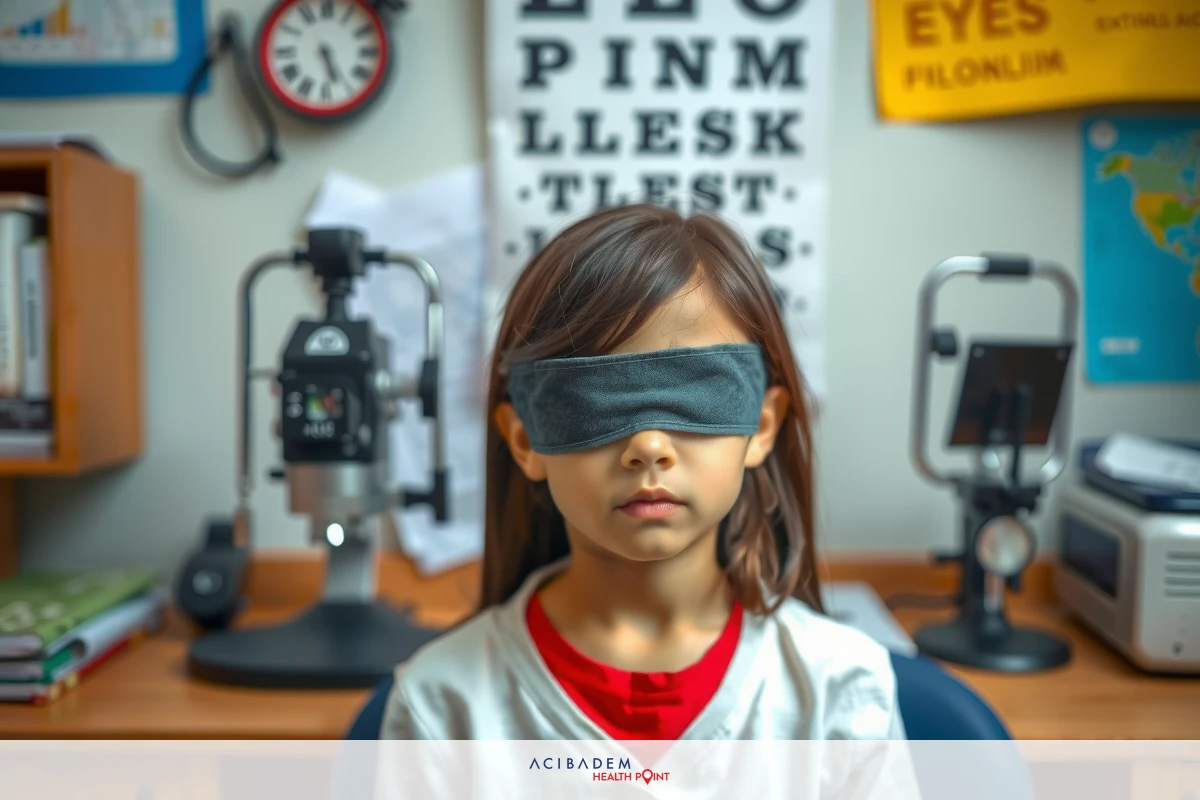Can LASIK Correct a Lazy Eye?
Can LASIK Correct a Lazy Eye? Understanding the complexity of lazy eye, also medically termed amblyopia, requires peering into the realms of vision science. This condition, often detected in early childhood, impairs one’s visual acuity and results from inadequate stimulation during developmental stages.
LASIK surgery represents an innovative solution to various refractive errors. Using laser technology to reshape the cornea, it potentially betters eyesight without reliance on corrective lenses. Yet its effectiveness for a lazy eye sparks curiosity among many individuals seeking solutions for their vision woes.
The question looming large over this discourse – can LASIK truly correct a lazy eye? The following paragraphs provide insights into our understanding of both these entities – lazy eye and LASIK – and attempt to unravel whether they intersect at points beneficial for patients.
What is a Lazy Eye?
In the intricate realm of ophthalmology, “lazy eye” is not an unfamiliar term. More formally addressed as amblyopia, this condition is often associated with reduced vision in one eye that does not improve with glasses or contact lenses. The onset typically occurs during infancy and early childhood years when the neural connections between the brain and eyes are still developing.
The root cause of lazy eye lies not within the physical structure of the eye itself but rather in its connection to the brain’s visual cortex. When one eye sends blurry or off-angle images consistently, over time, the brain starts favoring clearer images from the other healthy eye while gradually ignoring inputs from what we label as a ‘lazy’ one. This consistent act of favoritism leads to impaired vision development in that particular eye.
Someone diagnosed with a lazy eye may experience symptoms beyond just blurred vision. Depth perception can be affected; seeing three-dimensional objects might become challenging due to only one functional stereoscopic view provided by a single healthy functioning non-lazy counterpart. Moreover, it has been observed that those suffering from amblyopia tend to squint or shut their afflicted eyes under bright light conditions – additional aspects illustrating how this seemingly simple condition can significantly impact everyday experiences involving sight.
How Does LASIK Work?
It’s fascinating how a brief, approximately 30-minute procedure can potentially transform the world as we see it. Delving deep into the realm of ophthalmology, LASIK, an acronym for Laser-Assisted In Situ
Keratomileusis, is one such groundbreaking technique. Pioneered to correct refractive errors in vision and reduce dependency on glasses or contact lenses, this surgical procedure utilizes precise laser technology to reshape the cornea – which is essentially tasked with focusing light onto your retina.
When you undergo LASIK eye surgery, the first step involves creating a thin flap on your cornea’s surface using either another special type of laser called femtosecond or a microkeratome blade. Once lifted gently aside by your surgeon; another excimer laser comes into play. This ultra-precise tool sculpts and removes microscopic layers from your corneal tissue to correct irregularities that lead to imperfect refraction of light entering your eyes.
LASIK surgery is highly customizable. Preoperative evaluations, such as corneal topography and pachymetry, are performed for each patient to create a personalized treatment plan. This plan guides the reshaping of the cornea during surgery, leading to immediate vision improvement as the eye can now accurately focus incoming light on the retina.

Is LASIK an Effective Treatment for Lazy Eye?
The question that brings us here, can LASIK correct a lazy eye? To unravel the answer, it is crucial to understand the nature of amblyopia. As we have seen earlier, lazy eye primarily stems from an inequality in visual inputs during childhood development stages leading to favoritism by brain towards one eye and gradual neglect of the other.
LASIK surgery’s primary objective lies in correcting refractive errors like myopia (nearsightedness), hypermetropia (farsightedness), or astigmatism – all conditions where light entering your eyes does not focus correctly on your retina due to irregular corneal shapes. While this procedure has proven successful for many patients with these vision impairments, its potential effectiveness concerning correcting a lazy eye remains debatable.
A noteworthy point while discussing this topic is that LASIK can indeed improve visual acuity by rectifying refractive errors even in an amblyopic or ‘lazy’ eye. However, since underlying neural connections between the affected eye and brain remain unchanged post-surgery—there might still be discrepancies regarding depth perception and binocular vision despite improved clarity of images perceived through that particular eye. While considering LASIK as part of their treatment plan for amblyopia; individuals must consult thoroughly with experienced ophthalmologists who could provide insights based on their specific conditions and expectations post-procedure.
Frequently Asked Questions
What actually causes a lazy eye?
Lazy eye, also known as amblyopia, is often caused in early childhood due to any condition that might prevent one of the eyes from focusing clearly. These could include strabismus (misaligned eyes), significant difference in refractive errors between both eyes, or vision obstruction by cataracts.
Can adults develop a lazy eye suddeny?
No. Amblyopia typically develops during infancy and early childhood years when neural connections between the brain and eyes are still developing. It's important to diagnose and treat it as soon as possible for better outcomes.
Is LASIK surgery painful?
Most patients report only mild discomfort during LASIK surgery, primarily due to local anesthetic drops used before the procedure begins. Post-surgery recovery might be accompanied by temporary dryness or itching sensations which usually subside within few days.
Will my insurance cover LASIK surgery expenses?
Insurance plans vary greatly so it's best you consult with your insurance provider directly regarding coverage details for elective procedures like LASIK.








